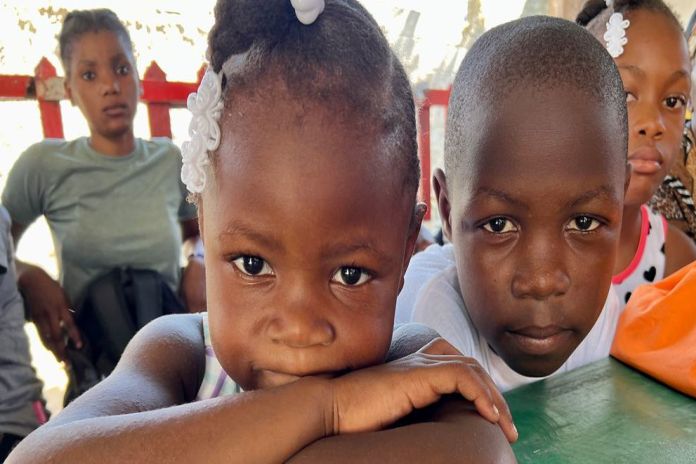Haiti’s child displacement – Caribbean News Global

- At least 170,000 children displaced amid escalating violence in Haiti
- In less than two weeks, nearly 2,500 people, most of them women and children, have been newly displaced in capital Port-au-Prince
PORT- AU- PRINCE, Haiti – The surge in armed violence across Haiti has triggered a profound humanitarian crisis, with the number of internally displaced children soaring to 170,000.
This alarming figure represents a twofold increase from last year, highlighting the rapidly deteriorating situation and its deep impact on the country’s most vulnerable children and families
As of January 2024, the latest figures reveal that near to 314,000 people have been uprooted across the country, mostly in Port-au-Prince and the Artibonite department, half of them estimated to be children. In less than two weeks, nearly 2,500 people, most of them women and children, have been newly displaced following clashes in the areas of Solino and Gabelliste, in Haiti’s capital, Port-au-Prince. The current situation is placing an enormous strain on the already limited resources of host communities and existing social services.
“In Haiti, children and families are enduring relentless waves of brutal violence, with each day bringing new horrors, the loss of loved ones, homes being destroyed by fire, and an ever-present shadow of fear,” said UNICEF Representative in Haiti, Bruno Maes, who visited three displacement sites in downtown Port-au-Prince’s. “Deprived of essentials like food, healthcare, and education, they are mired in a crisis that strips away the very essence of childhood. This is a humanitarian catastrophe unfolding before our eyes.”
Preliminary reports received by UNICEF paint a harrowing picture of the current crisis, revealing severe violations of children’s rights. Tragically, children are being caught in the crossfire, suffering injuries, or losing their lives, with some incidents occurring en route to school. Furthermore, there are increasing instances of children being forcibly recruited, while others join armed groups driven by sheer desperation.
The violence, coupled with certain demonstrations and protests in various departments, has led to the temporary closure of hundreds of schools, depriving children of their right to education. It also obstructs access to essential social services, hampering the efforts of humanitarian actors who are pivotal in providing emergency responses to those in need.
“We cannot remain idle while the future of Haiti’s children is being eroded by unending suffering. Every moment of inaction deepens the crisis that consumes their lives. The global community has a duty to bring hope and change to these young lives, ensuring a brighter, more secure future for them,” said Maes.
In 2024, UNICEF estimates that three million children across Haiti will require humanitarian aid due to escalating violence, malnutrition, cholera resurgence, and basic services on the verge of collapse. Over a third urgently need protection, with this number expected to rise if conditions worsen. Haiti, already the Western Hemisphere’s poorest nation, faces deepened vulnerabilities amidst this crisis.
Responding to these challenges, UNICEF and partners are delivering multisectoral aid in affected areas, including for children separated from their families and those impacted by violence. Working alongside partners, UNICEF provides life-saving assistance, ensuring access to medical care, psychosocial support, and safe spaces where children can begin the process of healing and recovery. To respond effectively to the humanitarian needs in Haiti, UNICEF is requesting US$221.7 million for 2024.
Source: caribbeannewsglobal.com

